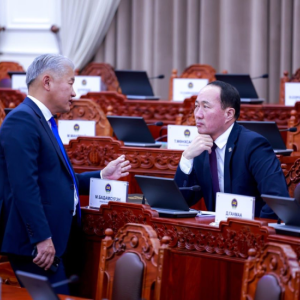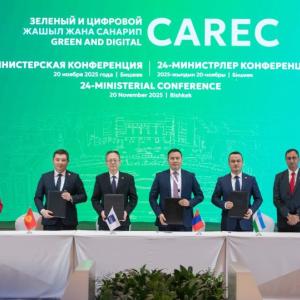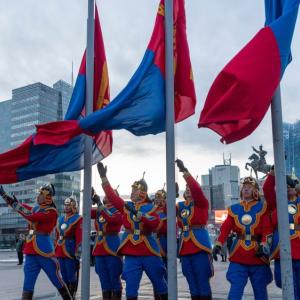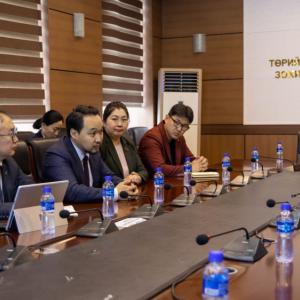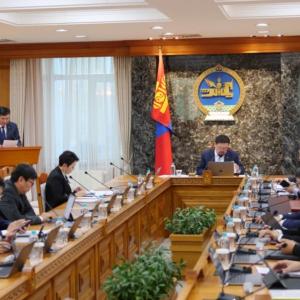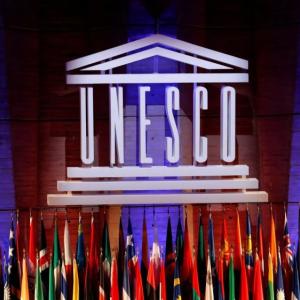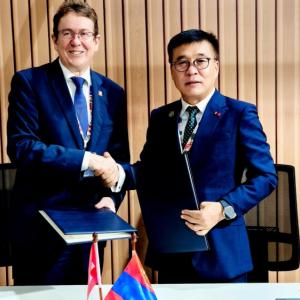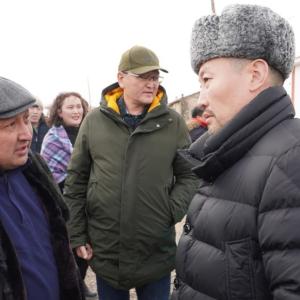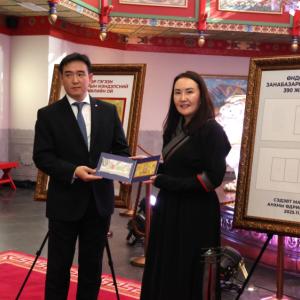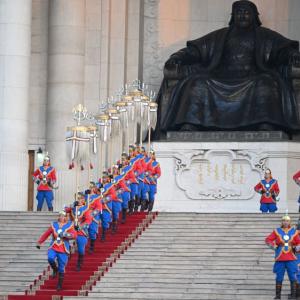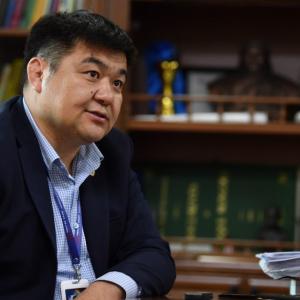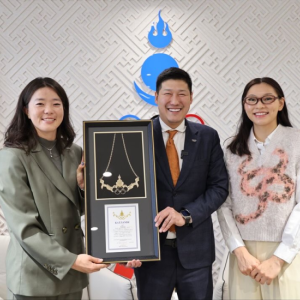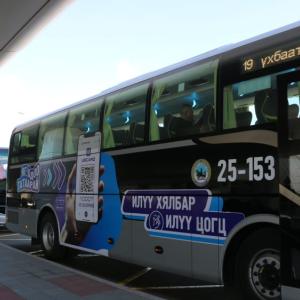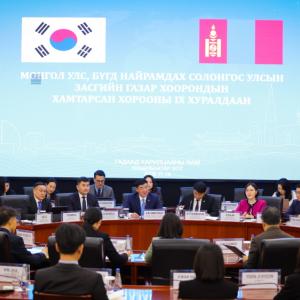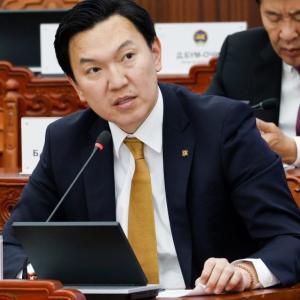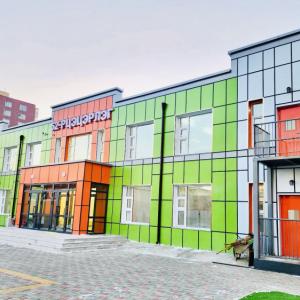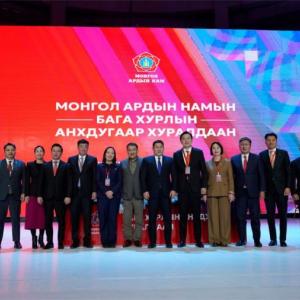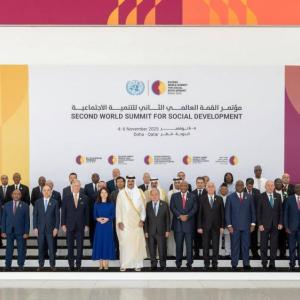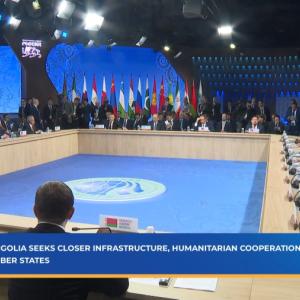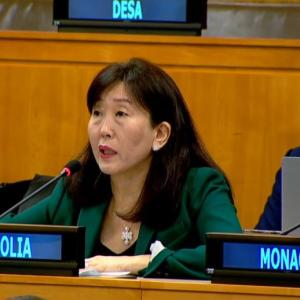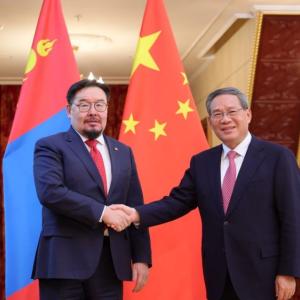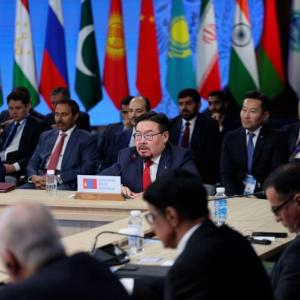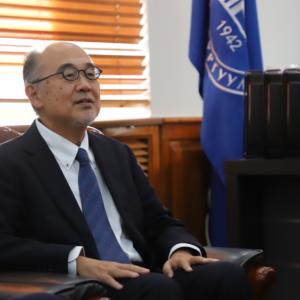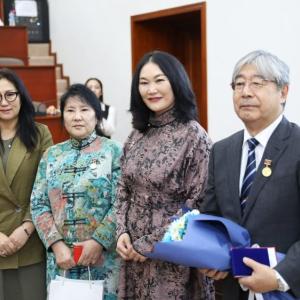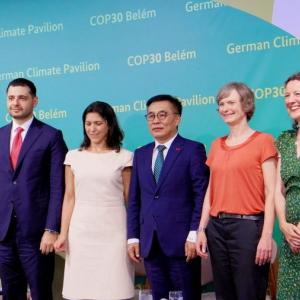Premier Oyun-Erdene: Government Submits Comprehensive Legal Reform for "20-Minute City" Concept to Parliament
Politics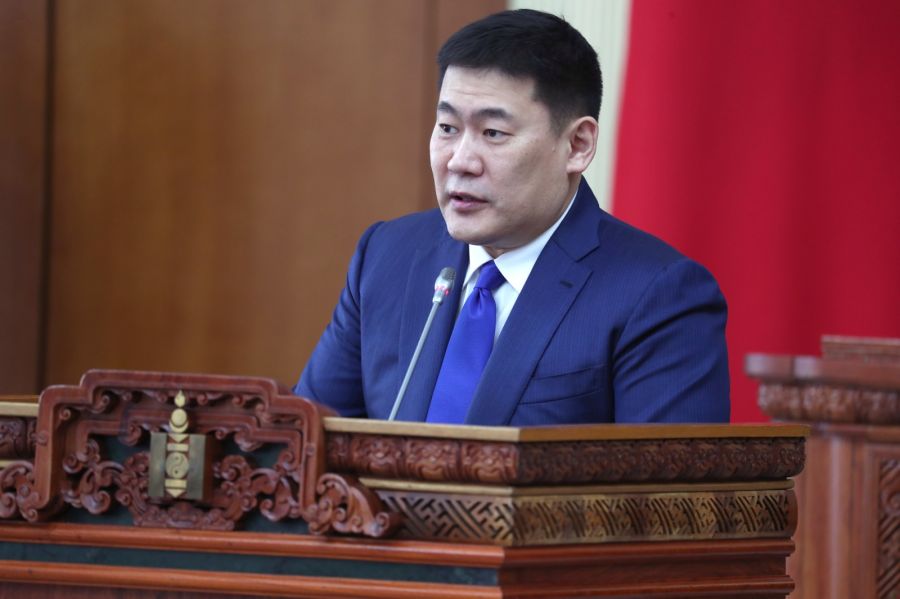
Ulaanbaatar, May 6, 2024 /MONTSAME/. Prime Minister of Mongolia Oyun-Erdene Luvsannamsrai addressed the plenary session of the Parliament on May 3, 2024, presenting the revised draft Law on the Legal Status of Cities and Villages. Here are the highlights of the Prime Minister's speech:
Dear Citizens of the Ulaanbaatar city!
Dear Speaker of the Parliament and the Honorable Members of the Parliament!
Since the establishment of our Government, we have been focusing on addressing fundamental reform issues that have been pressing for many years. It is evident that unless the underlying problem is solved, the resulting suffering will never dissipate.
Together, we have overcome the pandemic, finally resolved the narrow-gauge vs broad-gauge railway disputes, brought many corruption issues to light, and pursued them in court. By fully repaying the bonds of the Development Bank with its own assets, resolving the illegal issues of Erdenet Mining Corporation, Khutul Cement, and Darkhan Metallurgical Plant, canceling the USD 2.3 billion debt of Oyutolgoi, and initiating open trading of coal on the stock exchange, we have exposed the hidden economy. Our economy was at -4.6 percent just after the pandemic and achieved a growth rate of 7 percent, marking an increase of more than 10 percent. The economy has doubled, foreign exchange reserves have reached USD 5 billion, and the gross domestic product per capita has increased by USD 1,700 to USD 5,875.
In essence, we can understand that we are reaching the economic recovery period in 2012. Unfortunately, history has taught us that it takes more than 10 years to correct a mistake, so we must not lose ground again.
As a result of the fight against corruption, the Sovereign Wealth Fund legislation was passed, and fundamental reforms aimed at making the economy inclusive for all citizens were initiated. A notable instance of this is the allocation of this year's earnings from the wealth fund's savings to the mortgage loan program, which addresses the housing needs of over 10 thousand people who would have been waiting in a queue for more than a decade. This exemplifies the opportunities that were hidden before us.
By amending the constitution to implement a mixed election system with 126 members of Parliament, a significant step has been taken towards achieving gender equality and providing a real opportunity for representatives of social sectors to voice their opinions in the Parliament.
The world is closely observing our progress as a commendable example. We must redouble our efforts to cultivate a model of classical parliamentary government.
Mongolia's long-term development policy, Vision 2050, stands as a remarkable achievement, seamlessly integrating over 560 distinct policy documents. This accomplishment has garnered global acclaim and is being widely studied as an exemplary model.
The realization of the regional development concept and the expansion of electoral districts through zoning mark significant milestones.
We have a phrase that states as follows:
"Where there's a will, there's a way."
Therefore, the Government of Mongolia is proposing a comprehensive legal reform to enact the "20-minute city" concept as part of the Urban and Rural Revival framework.
This legal reform encompasses the legal status of cities and villages, territorial units, the legal framework for establishing new cities, and resolutions on financial resources to be issued by the Parliament.
The administrative structure of Ulaanbaatar, the capital of Mongolia, was initially organized into 4 districts on July 6, 1960, and expanded to 9 districts 32 years later, on January 13, 1992.
Another 32 years have since elapsed, signaling the necessity for radical and comprehensive reforms within the capital city of Ulaanbaatar.
Ulaanbaatar, while occupying only 0.3% of Mongolia's territory, accommodates over 50% of the total population.
Moreover, it generates a significant portion of the nation's economic output, with 63% of the domestic product, 84.0% of trade and services, 70.0% of enterprises, 90% of universities, and 84% of registered cars all concentrated within its boundaries.
Out of the capital's 35,206 hectares of land, a mere 700 hectares accommodate 140 state institutions, while only 86 hectares are allocated to the state palace area, where the entire power of Mongolia's legislative, judicial, and executive authorities converge.
To ensure mutual control and balance among administrations, it is imperative to separate the distribution of power.
This approach will guarantee adherence to the fundamental principles of good governance and the establishment of a legitimate state, comprehensively addressing issues of security and over-centralization.
In essence, as the Prime Minister of Mongolia, I am drawing a political conclusion that the excessive congestion in the capital signifies an over-concentration of power.
To effectively tackle issues in the capital, it is important to prioritize addressing the root cause of the problem rather than merely treating its symptoms.
For the citizens of the capital city, our objective is not merely to acknowledge the problem, but to catalyze a social debate founded on a deep understanding of the issue.
Media organizations, as the fourth estate, should give special attention to this matter.
There has been a subtle competition among citizens to be recognized as residents of the capital, particularly considering that only 0.3 percent of the territory is classified as urban, while the rest is rural.
Therefore, there is a pressing need to broaden our perceptions and attitudes.
After the government's proposed comprehensive 20-minute urban law reform is discussed and approved, the following issues will be addressed:
1. In addition to the capital Ulaanbaatar, cities such as Khushigt Valley – New Zuun Mod City, New Kharkhorum, Darkhan, Erdenet, Baganuur, and Nalaikh will be developed into large cities in Mongolia. Moreover, in the future, every region and every port will have the legal opportunity to have a developed city.
2. The capital Ulaanbaatar will be divided into the following 14 cities, each developed independently:
· Khan-Uul city
· Yarmag city
· Buyant-Ukhaa city
· Songino Khairkhan city
· Tolgoit city
· Bayankhoshuu city
· Onor city
· Bayangol city
· Chingeltei city
· Selbe city
· Sukhbaatar city
· Dari-Ekh city
· Bayanzurkh city
· Amgalan city
In these cities, a common standard will be established through electronic planning based on big data, ensuring that every citizen can access public services within 20 minutes.
3. The 204 sub-districts of the capital will be reorganized into 42 units with the status of local municipalities, empowering their governors to directly manage the budget. In other words, the role of the intermediary will transition into the final decision-making entity.
Healthcare, education, emergency services, police, public transportation, social development, and cultural services will be organized in a manner that ensures all quality-of-life services can be accessed within 20 minutes. Additionally, amenities such as walking and cycling paths, swimming pools, and fitness clubs will be within a 20-minute reach. This law aims at securing necessary funds from the state budget and establishing the legal framework for public-private partnerships.
4. To decentralize the authority of Baga Toiruu, government agencies are planned to be relocated to Khushigt Valley.
From Baga Toiruu to Khushigt Valley, direct connectivity will be established through a suspension bridge and a tunnel, enabling a 20-minute direct route from Chinggis Monument at the State Palace to Chinggis Khaan International Airport.
This connecting bridge will be named "GoMongolia". I would like to mention that under this law, the issue of government guarantee for this bridge structure is included.
5. The issue of transforming centers of aimags into local cities and independent development of large settlements with city status is also reflected in this law.
Upon the adoption of this law:
- A favorable investment and tax environment will be established to stimulate the development of Satellite cities.
- Local, regional, and international logistics will be enhanced through the establishment and development of a unified transport logistics hub.
- It is anticipated that a housing development project will be initiated, encouraging migration from the capital. Moreover, government institutions, universities, colleges, and scientific institutions will be relocated.
Esteemed Speaker of the Parliament and distinguished Members of the Parliament,
I respectfully call upon you to lend your support to the comprehensive legal reform proposed by the Government, aiming at establishing new cities and adopting the 20-minute city standard.
 Ulaanbaatar
Ulaanbaatar











